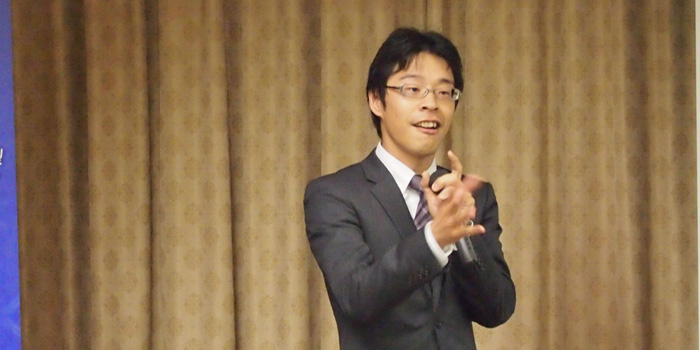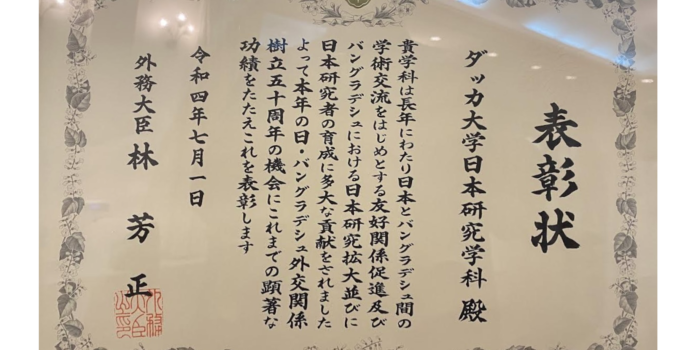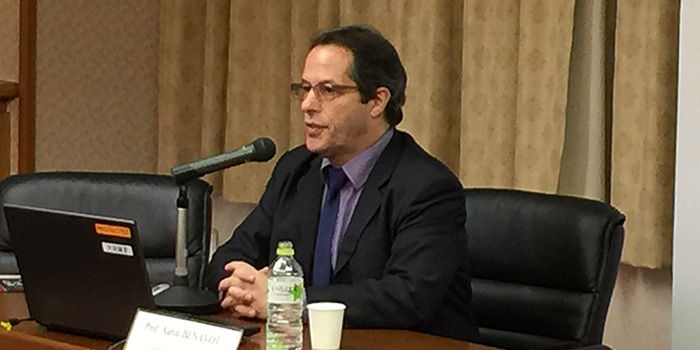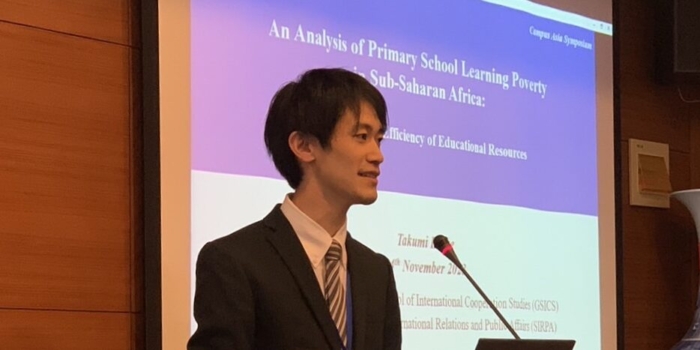It is my pleasure to post a message as an Ogawa-Zemi alumnus to future students. I am currently working as an Education Economist at the Education Global Practices, World Bank. Since I joined the Bank in 2004, when I was still a master student, I have worked in the Middle East and North Africa Region and South Asia Region. I worked in Yemen for four and half years, and for Bangladesh for about three years by now. I also worked for UNESCO Institute for Statistics between 2009 and 2011, mainly working for African countries.
Although I have obtained my Master’s and Doctor’s degrees in the field of Economics and I am currently working as an Education Economist, I didn’t have any knowledge of economic before coming to GSCIS. I studied so-called International Development Studies for my undergraduate degree, but it was mainly from a sociological approach. When I entered GSICS, I did not really know about the World Bank either. The luckiest part of my academic career at GSISCS was probably that Dr. Ogawa started his teaching work at GSICS in the year that I started my master’s degree.
The turning point for my academic and career development was my summer internship in Yemen and Lesotho during my first year of Master course. I joined Dr. Ogawa’s 2 weeks mission to Lesotho as an intern and contributed to the Education Sector Review. All the work was new to me – how to identify the data needs and collect data for analysis, how to discuss and negotiate with the counterparts and partners, how to compile, analyze and interpret the data and analytical results, and so on. It was quite an experience to apply the knowledge and theories learned through regular courses at GSCIS to the actual work. A few months later, I have got a consultancy opportunity in Yemen for doing a similar education sector review work to what I did for Lesotho, and I started my career at the World Bank. Because I have been working since when I was still in Master course, I did not spend much time sitting in the Ogawa-Zemi at GSICS campus in Kobe. However, I learned a practical skill of applying the theories to the actual work through my academic life at GSCIS and Ogawa-Zemi. I have learned it is not about how much knowledge I have, but it is about how much I can do with the knowledge I have gained.
From my experience, I believe one of the greatest advantages of joining Ogawa-Zemi is to get a lot of unique and practical opportunities. While nobody doubts the importance of having expert knowledge, it is often not enough to be working as a professional in the field of development if the expert knowledge is not accompanied by practical experiences.
I believe those who are applying for GSICS are interested in and passionate about development work. However, what you can do is equally (or probably more) important than passion if you want to work in the field. I look forward to meeting in the future more of passionate young experts with great skills backed up with experiences. Good luck!
Shinsaku Nomura
Education Economist, Education Global Practices, World Bank
July 2014
Related






